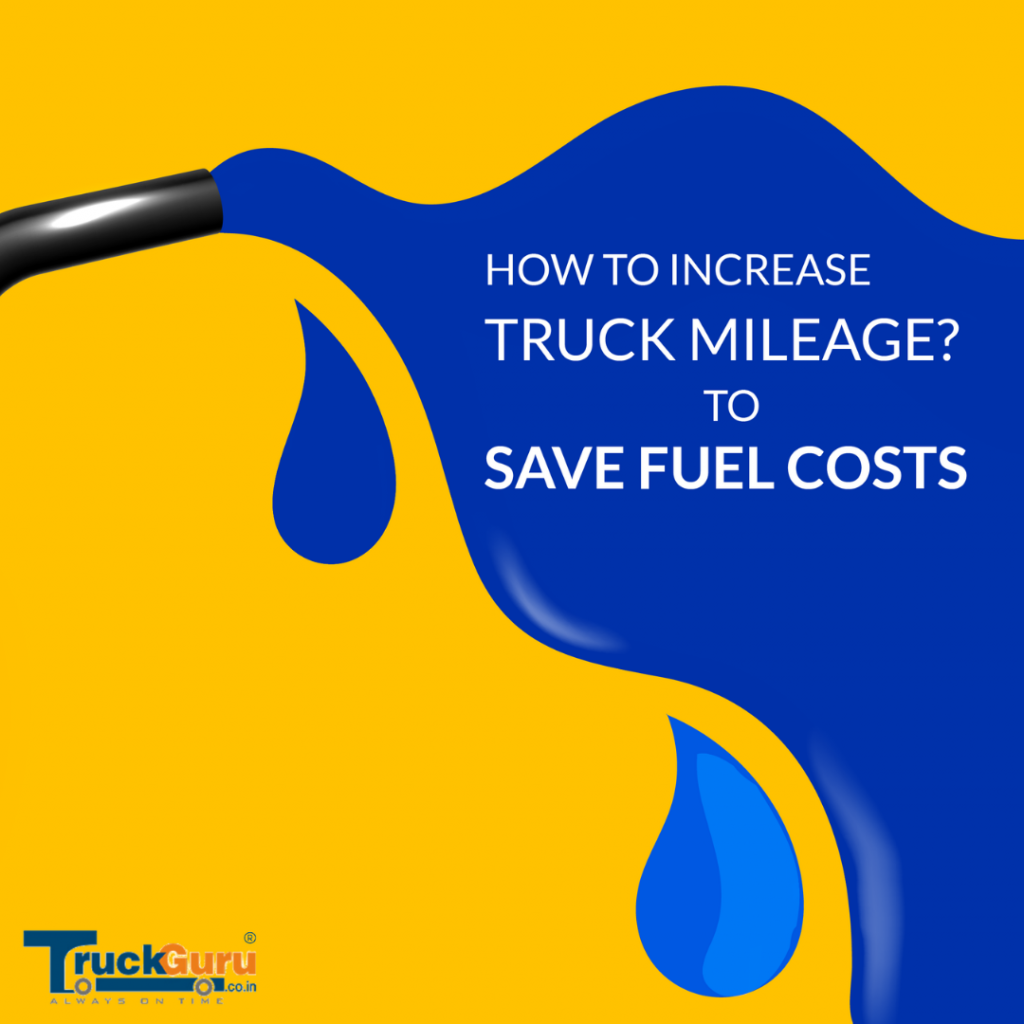
Since fuel prices continue to rise at an astounding rate, finding fuel-efficient options for better truck mileage has become critical. Many people switch in their huge trucks for smaller vehicles that use less gasoline. However, for some businesses, you require trucks and trailers, therefore selling them for other vehicles would not be an option. As a result, improving the truck’s mileage is most likely the best option. To accomplish that, you simply need to make certain changes and break old patterns. Here are a few tips to help you increase your truck’s mileage and save on fuel costs.
1. Regular Maintenance to maintain the Truck’s Average Mileage
Preventive and regular maintenance should be included in your routine. Annual maintenance aids in the detection of tiny flaws or issues with your truck, allowing you to prevent pricey overhauls down the line. Check for leakage, damages, corrosion, as well as other hindrance to the truck’s average mileage and system when checking.
Ensure that the wheels are correctly aligned to ensure that the truck’s average mileage is maintained or improved. Also, clean but also replace the air filter as needed. A blocked filter can reduce the airflow to your engine, leading to greater fuel-to-air proportion and higher usage. In routine maintenance, consult your owner’s handbook to determine the quality class of oil the engine requires. When levels drop, always add high-quality fluids.

2. Don’t Drive Recklessly
One of the quickest ways to waste fuel is to drive recklessly and impulsively. It’s classified as speeding, as well as fast braking and acceleration. When driving on the highway or in heavy traffic, pushing the gas pedal and then the brake one after the other can reduce your truck’s mileage by 15 to 30% or 10 to 40%.
Aggressive start or speeding quickly from a stop, as well as weaving in or out of traffic, wears down your truck’s systems, damages the wheels and brakes, which burns fuel that will affect the mileage of truck. Keep a gentle and consistent pressure on the pedals to avoid forceful speeding and braking. Slow down and don’t press the brakes unless it’s an emergency. If the road conditions allow, use cruise control on the highway. However, keep in mind that when gravity is at work, little differences in speed might be beneficial. Let your speed decline as you drive upward when traffic conditions allow, then recover speed as you glide downhill.
3. Reducing Idling to A Minimum to increase the mileage for trucks
Idling may deplete your fuel supply, even if you’re only running errands or attempting to keep the temperature in the cab at a comfortable level. When you’re not using your car, switch it off to conserve gas. This small change can really help you increase your mileage for trucks.
Always switch off the engine once you’re in a safe area with little chance of an accident. Turn off your truck, for instance, if you’re stuck in a traffic jam or even at a stoplight. Leave your engine running if you’re stuck in slow traffic in case you need to speed or move out of the way.
4. Keep Checking Tire Pressure
Tires that are properly maintained increase your truck’s mileage and also have a higher survival rate. To find the correct PSI for your truck tires, trailers see your manufacturer’s manual. It’s one of the simplest methods to reduce your gasoline costs and increase efficiency. Make sure each driver has their tire gauge. It will be beneficial to have one on hand, especially in the cold season.
When your tires are correctly filled, if they were 10 psi too down before you filled them up, you’ll cut your fuel consumption by 2%. It may not seem like much, but keeping your tires filled is simple maintenance that adds up over time and helps maintain your diesel truck’s mileage.

5. Maintain a Steady Speed to maintain your mileage of trucks
Maintaining a consistent speed might help your vehicle consume less fuel which is an important bit for your truck’s average mileage. Once you’re on the highway, turn on cruise control, but don’t use it when going up or down hillsides. Once you can keep your speed under control, you can keep your fuel use consistent. The more gasoline you consume, the more aggressive and irregular pressure you apply to the accelerator and the more it affects your truck’s mileage.
It’s also recommended to keep your speed below the speed limit, which for big trucks is usually 65 mph. Driving at 65 mph rather than 75 mph can improve the fuel mileage of truck by up to 20%.
6. Don’t Carry too much Weight
A fully loaded truck uses more fuel than one that is empty. Although cargo load is an unavoidable part of transporting services and products, whether you’re hauling fruit or building materials, you’ll get rid of any excess weight that keeps slowing you down if you want to maintain a good mileage for trucks. Maybe more essentially, you should avoid tying anything to a bed of the truck that would increase air resistance.
Anything that adds a lot of weight is unnecessary. Any additional weight on your truck might drop your mileage by 1%. Check that the burden you’re hauling is exactly what you require.
7. Use Air-con Or Heaters mindfully to help your Diesel truck’s mileage
The use of air-con can raise a truck’s fuel usage by up to 20%. When driving in the city, leave the windows down, and on the highway, use the flow-through airflow with the windows closed. Just use the re-circulate option if you have the air con on. It will have the least amount of influence on the truck’s mileage.
According to AFDC research from 2015, heavy-duty vehicles burnt about 0.04 and 0.08 gallons per hour to run a diesel-fired heater. It’s not insignificant for your diesel truck mileage, however, keeping your truck cabin warm on a chilly winter night is as well. Although it is a little gasoline expense, it has a significant influence on a driver’s wellbeing.

Even though each usable advice may appear to be little, all stack up towards a more economic system, eventually helping you to increase your average mileage of trucks. As a result, you save a lot of money while simultaneously lowering the number of greenhouse gases released into the world. Being aware of fuel efficiency encourages drivers to drive with caution, consistency, and good technique, which benefits in safe navigating and sticking to speed restrictions.




